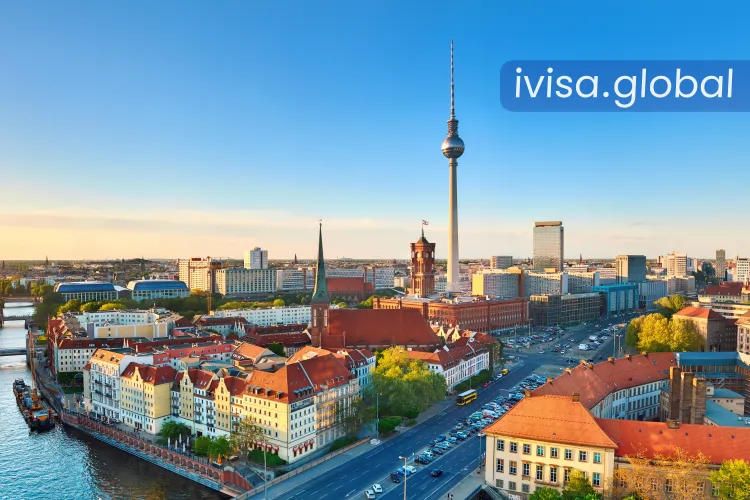Ireland, an attractive island nation situated in Northwestern Europe, captivates visitors with its picturesque landscapes, fascinating culture, and enchanting history. As a sought-after destination for leisure travelers, business professionals, and international students, Ireland offers a plenty of opportunities for personal growth and unique experiences. In this comprehensive guide, we provide more information about the various Ireland visa types, application procedures, and essential requirements.
Ireland has a temperate maritime climate all year, with moderate temperatures and high humidity. Rainfall is common even in the summer months, making the weather unpredictable and changeable. Winter is the coldest and wettest season, with temperatures gradually rising in the spring. At any time of year, it’s best to be prepared for rain and cooler temperatures.
Why Choose Ireland?
Boasting a dynamic economy, exceptional healthcare services, and a top-tier education system, Ireland presents a multitude of possibilities for individuals seeking unparalleled experiences and professional development. The harmonious blend of modernity and tradition, coupled with its secure and hospitable environment, makes Ireland a prime choice for singles and families alike.
Ireland Visa Categories
Depending on your purpose for visiting, Ireland offers an array of visas for applicants. In this section, we will highlight the three most prevalent visa categories: tourist, business, and student visas.
Tourist Visa
Non-EU/EEA nationals planning a leisurely visit to Ireland will typically require a short-stay “C” visa. This visa grants permission to stay in the country for a maximum of 90 days within a 180-day timeframe. To apply, you must submit documentation such as a valid passport, proof of financial means, travel insurance, and a detailed itinerary outlining your planned activities and accommodations during your stay.
From breathtaking natural landscapes to rich cultural heritage sites, Ireland offers a diverse array of experiences for travelers to enjoy.
- The Cliffs of Moher: Located on the Atlantic coast, the Cliffs of Moher are one of Ireland’s most iconic and breathtaking natural wonders. These sheer cliffs, which rise over 700 feet above the ocean, provide beautiful views of the sea and surrounding countryside. Visitors can explore the cliffs on foot, taking in the fresh sea air and scenic vistas.
- The Ring of Kerry: The Ring of Kerry is a scenic drive that circles the Iveragh Peninsula, providing panoramic views of Ireland’s rugged coastal landscapes. Along the way, visitors can stop at beautiful villages, ancient ruins, and historic sites, such as the Muckross House and Gardens and the Skellig Michael Monastery.
- The Giant’s Causeway: Located on the northern coast of Ireland, the Giant’s Causeway is a geological wonder that attracts visitors from around the world. This UNESCO World Heritage Site is famous for its hexagonal basalt columns, which form a natural staircase leading down to the ocean. Visitors can take a guided tour or hike the area on their own, taking in the unique natural beauty of this extraordinary site.
- The Wild Atlantic Way: The Wild Atlantic Way is a 1,500-mile coastal route that stretches along Ireland’s west coast, providing stunning views of the Atlantic Ocean and Ireland’s rugged landscapes. Visitors can explore charming seaside towns, hidden beaches, and stunning natural landmarks, such as the Cliffs of Moher and the Skellig Islands.
Business Visa
Designed for non-EU/EEA nationals visiting Ireland for business-related ventures, such as conferences, meetings, or negotiations, the business visa is also a short-stay “C” visa. It allows visitors to stay up to 90 days within a 180-day period. Alongside the standard tourist visa documentation, business visa applicants must also provide an invitation letter from an Irish company or organization, specifying the visit’s purpose and duration.
Student Visa
Non-EU/EEA nationals accepted into a full-time study program at an Irish educational institution must apply for a long-stay “D” study visa. This visa permits residence in Ireland for the course’s duration, usually up to one year, with the option to renew as needed. In addition to the standard short-stay visa documentation, student visa applicants must also provide proof of enrollment in an Irish institution, evidence of sufficient funds for self-support, and proof of private medical insurance.
Navigating the Application Process
The application process for an Ireland visa may vary based on visa type and country of residence. Generally, you must submit your visa application online via the Irish Naturalisation and Immigration Service (INIS) website. Following the online application, you will need to submit supporting documentation, passport-sized photos, and an application fee to the nearest Irish embassy, consulate, or visa application center.
Ireland visa application processing times can differ based on visa type and application volume. To circumvent potential delays, it is recommended to apply well ahead of your intended travel date.






